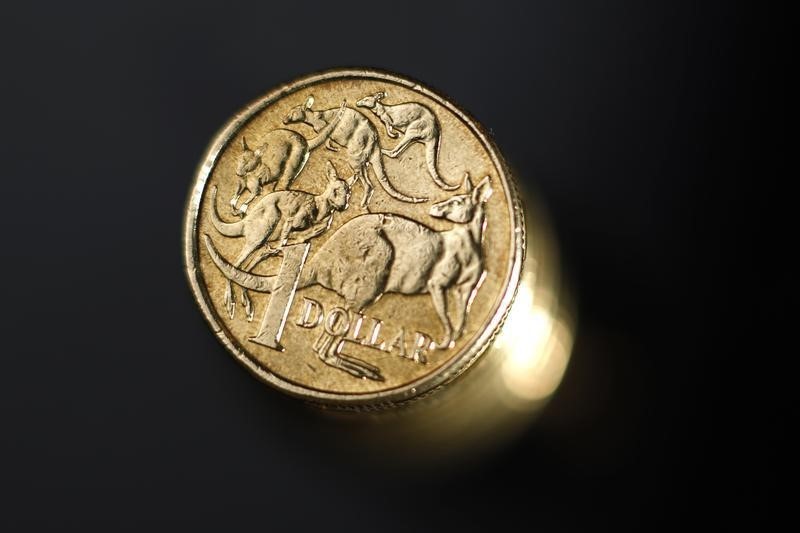Investing.com - The Aussie drifted lower in early Asia on Wednesday ahead of retail sales figures and after an upbeat services survey.
AUD/USD traded at 0.7618, down 0.03%, while USD/JPY changed hands at 102.82, down 0.07%. GBP/USD traded at 1.2734, up 0.07%.
In Australia the AIG services index came in at 48.9 in September from 45.0 level previously, with the survey ahead of retail sales data for August that sees a 0.2% gain month-on-month.
"Stronger business confidence and activity levels will require more active leadership from government - including meaningful improvements to business taxation rates and the regulatory burden," AI Group Chief Executive Innes Willox said.
The U.S. dollar index, which measures the greenback’s strength against a trade-weighted basket of six major currencies, was last quoted at 96.10.
Overnight, the dollar extended gains to a two-month high against the other major currencies on Tuesday, as comments by Richmond Federal Reserve head Jeffrey Lacker and upbeat U.S. data boosted hopes for a U.S. rate hike before the end of the year.
Richmond Fed governor Jeffrey Lacker suggested on Tuesday that interest rates should already be at least 1.5%, compared to the current range of 0.25%-0.50%, in a speech delivered to the West Virginia Economic Outlook Conference in Charleston, West Virginia.
Lacker also stressed the need for “pre-emptive” action to combat future inflation.
The U.S. dollar was also boosted after upbeat manufacturing activity and consumer sentiment data sparked optimism over the strength of the economy and supported the case for a rate hike by the Federal Reserve before the year end.
Market participants were focusing on Friday’s U.S. nonfarm payrolls report for further indications on the strength of the job market, as the Federal Reserve has indicated that future interest rate decisions will be data-dependent.
Research firm Markit said on Tuesday that its U.K. construction purchasing managers' index rose to 52.3 in September from August’s reading of 49.2. Economists had expected the index to drop to 49.0 in September.
But the pound remained under broad selling pressure amid concerns over a ‘hard brexit’ after British Prime Minister Theresa May set a March deadline to begin the UK's formal departure process from the European Union.
